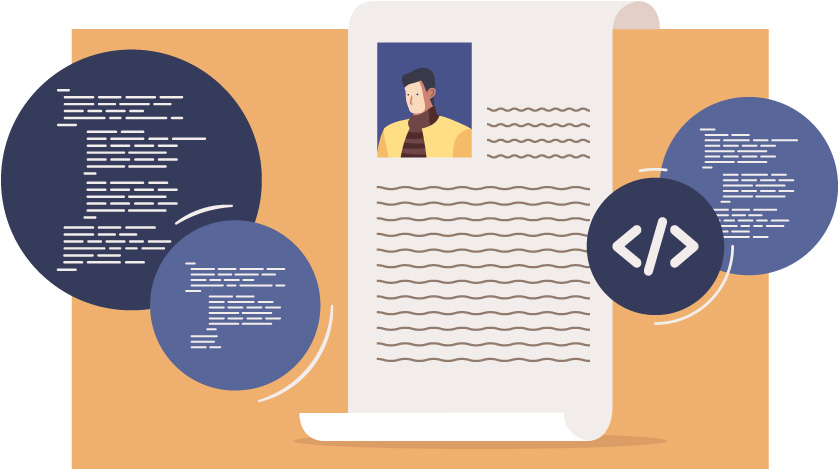So you want to be an iOS developer. You’ve studied Objective C or Swift in depth, familiarized yourself with the Xcode IDE, and mastered the Cocoa Touch framework.
Now it’s time to start thinking practically about what you need to do in order to get that first developer job. And that’s exactly what we’ll walk you through in this article, from initial research to applications and interviews, all the way to your first few weeks on the job.


What do they really want? What do YOU really want?
So you’ve got all the basic skills that the Internet says iOS developers should have. Great! But guess what? Google “iOS junior developer job” and you’ll find page after page of job ads that ask for skills and technologies you’ve never even heard of. So what’s the deal? Did the Internet lie to you? No. It’s just that app development is a job—and like any other job, each company has its own way of doing things and its own needs, depending on its business model and client base. Some degree of specialization—beyond the basics—is going to be required to function as an iOS developer in an actual company. So how do you know what you should learn in addition to the basics? Think about what kind of app development you want to do. Look at it this way. Say you were aiming for a career in medicine. Would you say “I just want to be a doctor, I don’t care what kind,” and leave it at that? No way! You’d be thinking—very early on in your studies—about the sort of medicine you’d like to practice, the sort of physician you wanted to be: Pediatrician or surgeon? Oncology or cardiology? Researcher or family practice? Programming is no different. While you don’t have to know exactly where you’ll end up, you should at least try to figure out the kind of app development you’re interested in. Do you want to be a game designer? Are you interested in creating applications for business? Do you see yourself working in a large company or at a small start-up? Once you’ve figured out what sort of job you want to do, scan job ads that most closely fit the sort of role you’re looking for (even if they’re not in your city). And talk to people who are already working in those jobs. See what skills people seem to be looking for and then—you guessed it—acquire those skills!Show them what you can do
An iOS developer who hasn’t ever created a working app isn’t really an iOS developer. If you want to get hired, you have to have some samples of your work to show off to potential employers. You need a portfolio. But how can you build a portfolio before you’ve actually worked as an iOS developer!?! Easy answer. You make one anyway. If you took full courses like Udemy’s “Become an iOS developer from scratch” or worked on one of Treehouse’s many iOS projects, you should already have some functioning apps that you created while you were learning. Polish these a little bit and you have perfect portfolio material. You could also look to create portfolio items by volunteering (and do some good in the process). Websites like Catchafire match nonprofits that need help with experts who are looking to donate their time and skills for a good cause. These sites are a great place to find organizations that need some technical help. If they’re actively looking for an iOS app, you’re in business. But even if they’re not, you can still reach out to these organizations and see if you can offer them a useful app that could help them with their work. Once you’ve got some projects you’re proud of, you’ll need to build a website to display them. An easy, professional, and low-cost option that many developers choose is to create a project portfolio site using GitHub Pages.
Apply, Apply, Apply
OK, so you’ve got the knowledge, you’ve got a strong portfolio, and you know what kind of job you’d like to be in. The next step is to get an interview! You can go the traditional route of applying through job boards—especially those dedicated to programming jobs like Stack Overflow Jobs or GitHub Jobs. You can also do it the old-fashioned way, by networking. Start by using the contacts you made while researching the iOS developer specialization you were most interested in. Finally, remember that applying for jobs is a skill that can be learned—and improved upon. You should be ready to fine-tune your approach if need be, using setbacks as learning experiences. And you should actively seek out real feedback whenever possible. For example, if you don’t get much of a response from your initial round of applications, see if you can talk to some of the hiring or HR people at those companies. Ask them what you could do to strengthen your application. It may not land you a job at that company, but you’d be surprised at how many people are willing to help you in your job search, if you just take the time to ask!